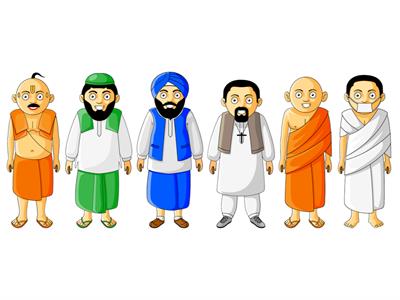
PUMPA - SMART LEARNING
எங்கள் ஆசிரியர்களுடன் 1-ஆன்-1 ஆலோசனை நேரத்தைப் பெறுங்கள். டாப்பர் ஆவதற்கு நாங்கள் பயிற்சி அளிப்போம்
Book Free Demo7. After school, we went home and told our respective parents about the incident. Lakshmana Sastry summoned the teacher, and in our presence, told the teacher that he should not spread the poison of social inequality and communal intolerance in the minds of innocent children. He bluntly asked the teacher to either apologise or quit the school and the island. Not only did the teacher regret his behaviour, but the strong sense of conviction Lakshmana Sastry conveyed ultimately reformed this young teacher.
8. On the whole, the small society of Rameswaram was very rigid in terms of the segregation of different social groups. However, my science teacher Sivasubramania Iyer, though an orthodox Brahmin with a very conservative wife, was something of a rebel. He did his best to break social barriers so that people from varying backgrounds could mingle easily. He used to spend hours with me and would say, “Kalam, I want you to develop so that you are on par with the highly educated people of the big cities.”
Explanation:
Kalam and Ramanadha Sastry were very upset about the mistreatment that happened in school. Children tend to look up to teachers to imbibe values. When a teacher who is in such a respectful position makes offensive remarks or propagates inequality, it tends to be etched in the children's minds. They do not understand why it is bad and grow up following the same. They may, in turn, give out these values to people around them. But when they discussed this issue with their parents at home, the parents set a good example by addressing it in front of them. Lakshmana Sastry, the high priest and the father of Ramanadha Sastry summoned the teacher and gave him a warning. He very clearly states that one must not inflict the poison that certain people are superior/inferior to other people, just because they come from a particular community or religion.

All humans are equal
He calls it poison as it affects the mindset and fills the children's minds with communal intolerance. When someone makes a mistake, it is important to make children understand that one has to apologise. Rather than shouting or yelling at them, one needs to understand that people behave in a particular way because of a lack of awareness. Lakshmana Sastry makes the teacher understand his mistake and its consequences, thereby making him regret it. The teacher apologises for his behaviour. Sastry just gave him the option of apologising or quitting his job.
A small sect of Rameswaram discriminated people based on their differences. But Kalam says that his Science teacher Sivasubramania Iyer was unlike the rest of them. Although he was an orthodox Brahmin, he never discriminated anyone but treated everyone equally. He had a wife who did not encourage people from various walks of life to mingle, but he did his best to break all these unnecessary practices. He motivated Kalam to be his best version of himself and reach great heights like those in the big cities.
Words with difficult meaning:
| S.No | Words | Meaning |
1 | Respective | Belonging or relating separately to each of two or more people or things |
2 | Communal intolerance | Not able to accept the differences of people from different communities |
3 | Blunt | Uncompromisingly straight forward |
4 | Apologise | Seeking forgiveness |
5 | Regret | To feel bad about a decision |
6 | Conviction | A firmly held opinion |
7 | Segregation | The act of separating |
8 | Conservative | Very traditional and holding to old values |
9 | Rebel | A person who is in opposition |
Reference:
National Council of Educational Research and Training (2006). Beehive. My Childhood - APJ Abdul Kalam (pp.68-79). Published at the Publication Division by the Secretary, National Council of Educational Research and Training, Sri Aurobindo Marg, New Delhi.